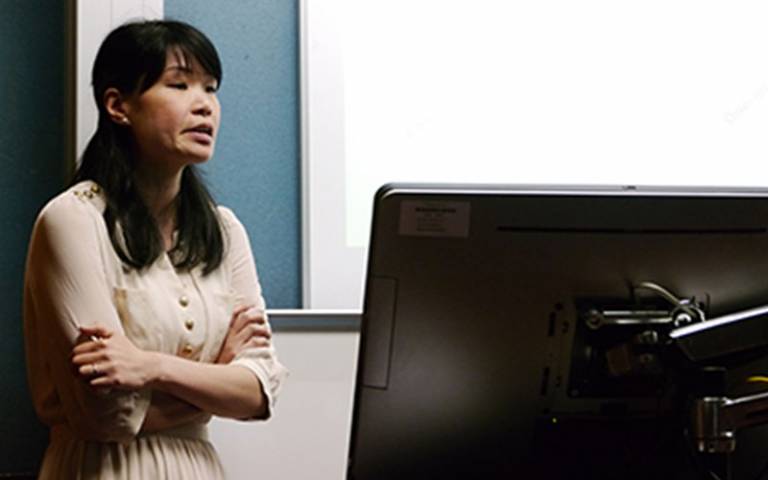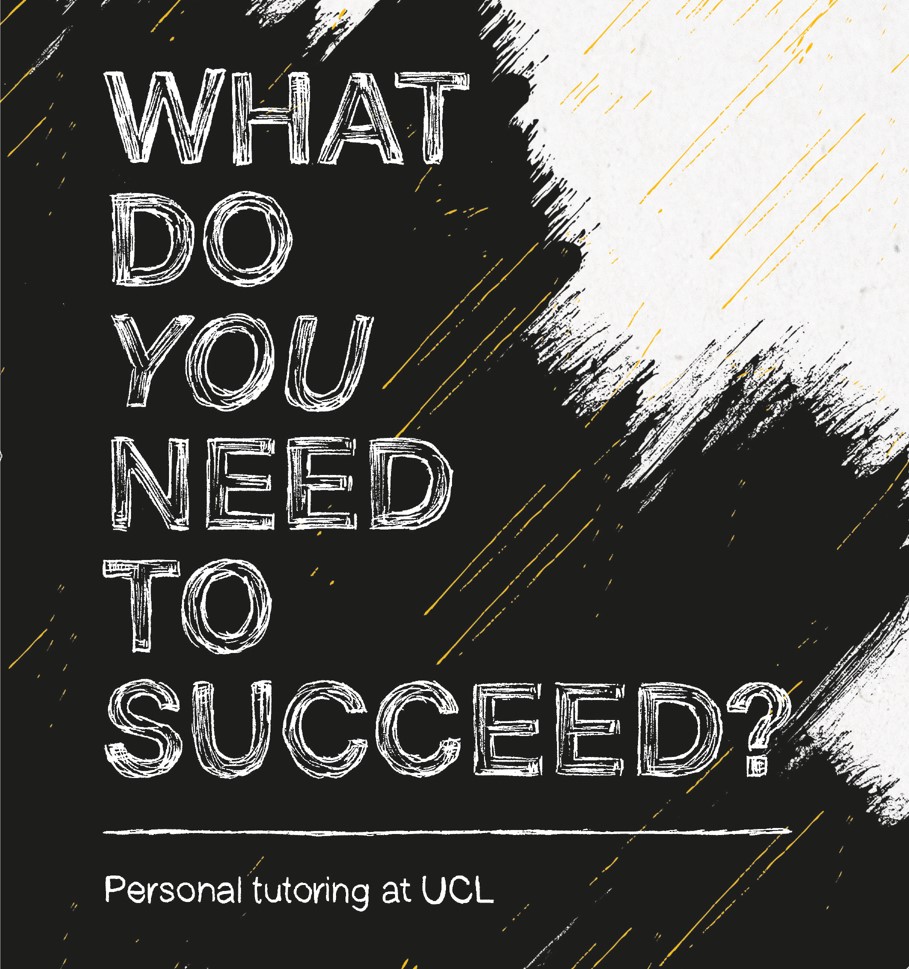What do students want from their personal tutors?
Abbie Willett, Beatrice Lok and Dr Paul Walker revealed the top five most valued aspects of personal tutoring to attendees at the UCL Teaching and Learning Conference 2014.

10 April 2014
Personal tutoring is often used as a form of pastoral support in UK higher education. But is that the best use of the system?
Abbie Willett and Beatrice Lok set out to explore at the UCL Teaching and Learning Conference 2014 (now reformatted as the UCL Education conference) whether a new approach that focuses on enhancing students' learning could provide additional benefits.
This is an approach they believe could be conducive to research-based learning. However, they first needed to find out what students want from the relationship.
The first phase of the project - a student survey hosted on Opinio that garnered 271 responses - provided the following results.
What students want from personal tutoring
A focal point of support
The students showed they appreciate the idea of knowing someone who will be able to provide personal support if necessary.
They indicated that while they might not ever have any reason to call on that support, they valued the fact that a safety net exists and that a person within the university has a genuine interest in their progress.
Tutor quality
Students all have different ideas of which personal qualities they value. Some appreciate the helpfulness or friendliness of the tutor. Others focused on the tutor’s background.
They see personal tutoring as a special opportunity to engage with an expert in a particular academic field and a departmental staff member.
One-on-one sessions
Students also like the idea of receiving personal attention in one-on-one sessions, allowing the tutor to focus on their progress.
Connection with department/UCL
Some students see personal tutoring as providing a special value to their study—a sense of a personal touch.
Through the personal contact with their tutors, they are able to connect with their department and the university, getting information from an insider and bridging their communication.
Academic support
Personal tutoring is a form of quality academic support for some. For example, receiving help on writing essays and charting their progress.
What students don't want from personal tutoring
Unnecessary meetings
What is the appropriate number of meetings per term?
The majority of respondents think there are too few, but others think there are too many and that regularly scheduled meetings are useless as there may not be anything to discuss.
In those cases, meetings become a source of frustration.
Sense of impersonal practice
Some students reflected that they see tutoring as a tick box process.
They felt personal tutoring was a standard part of the university structure and that made the sessions feel impersonal.
Limited availability/accessibility
Tutors are considered busy people and therefore some felt uncomfortable approaching them.
An unhelpful attitude from tutors
Some tutors seem to be less helpful and supportive and give the sense of trying to keep a distance from tutees.
Irrelevant tutor background
There are students who have been assigned to tutors whose backgrounds differ from their academic interest. Those students feel their tutors are less able to help offer advice.
International students’ needs
Considering the increasing diversity of the student body, Beatrice felt it was interesting to see whether students from different cultural background share similar experiences of personal tutoring.
The findings show that the home and EU students share very similar ideas while the overseas students have a slightly different outlook.
For example, overseas students show more concern about the issue of availability/accessibility than the other two groups.
This can be explained by the fact that the overseas group requires more instrumental support (i.e. tangible assistance and informational support) than the other two groups in order to settle into student life in the UK.
Themes to consider
Four themes have begun to emerge that, together, act as a framework for capturing the core values of personal tutoring that students need:
- See students as unique individuals
- Provide personalised attention
- Support academic and professional development
- Establish a bond between tutors and students.
Beatrice explained that the project revealed that some core values of personal tutoring align with a research-based pedagogy approach.
Personal tutors can act in different roles to support students’ research development as part of a community of practice:
- As a senior academic researcher who can legitimate students’ researcher membership to the university
- As an expert in their academic field who is able to co-construct knowledge and research ideas with students through interacting with them during the tutoring sessions
- As an advisor who can offer students individual support on academic, research and professional development issue based on their past experiences.
 Close
Close


